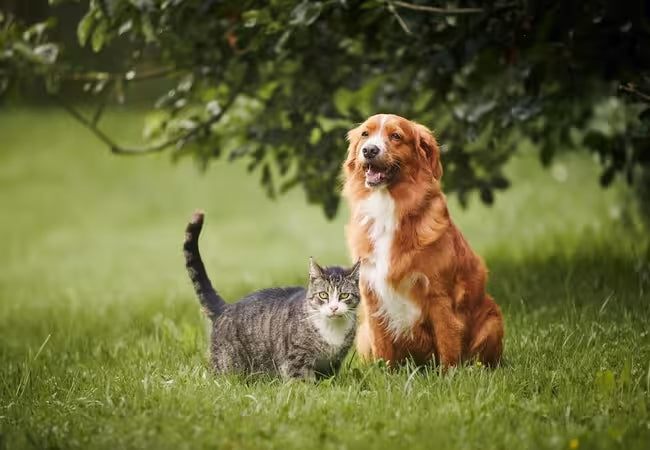Fecal Microbiota Transplants for Pets: 2025 Vet-Approved Gut Health Guide 🐕🐈

In this article
💩 Fecal Microbiota Transplants in Dogs and Cats: A 2025 Guide to Gut Health 🐶🐱
By Dr Duncan Houston BVSc
Fecal microbiota transplantation (FMT) is an emerging therapy in veterinary medicine, offering hope for pets suffering from chronic gastrointestinal issues. By transferring healthy gut bacteria from a donor to a recipient, FMT aims to restore balance in the digestive system. Let's delve into what FMT entails, its benefits, risks, and considerations for pet owners in 2025.
🔬 What Is Fecal Microbiota Transplantation?
FMT involves the transfer of fecal material from a healthy donor to the gastrointestinal tract of a sick recipient. This process introduces beneficial microbes to the recipient's gut, aiming to re-establish a balanced microbiome. In humans, FMT has been used to treat conditions like Clostridioides difficile infections, and its application is expanding into veterinary medicine.
🐾 Why Consider FMT for Your Pet?
Pets with chronic digestive issues, such as persistent diarrhea, inflammatory bowel disease (IBD), or those unresponsive to conventional treatments, may benefit from FMT. By restoring a healthy microbial balance, FMT can alleviate symptoms and improve overall gut health.
🧪 The FMT Procedure
The process begins with selecting a healthy donor, whose fecal material is screened for pathogens. The material is then prepared and introduced to the recipient's gastrointestinal tract, either via colonoscopy, enema, or oral capsules. The method chosen depends on the specific case and veterinary recommendation.
⚠️ Potential Risks and Considerations
While FMT is generally considered safe, potential risks include:
- Transmission of Pathogens: If donor screening is inadequate, there's a risk of introducing harmful organisms.
- Adverse Reactions: Some pets may experience mild gastrointestinal upset post-procedure.
- Lack of Standardization: As FMT is a relatively new therapy in veterinary medicine, protocols may vary between clinics.
📈 Current Research and Developments
Studies are ongoing to better understand the efficacy and safety of FMT in pets. Early results are promising, with many animals showing improvement in gastrointestinal symptoms post-FMT. As research progresses, standardized guidelines and protocols are expected to emerge, enhancing the safety and effectiveness of this therapy.
📱 Leveraging Technology for Pet Health
Modern tools can assist in managing your pet's health effectively:
- Ask A Vet App: Access expert veterinary advice and schedule consultations conveniently.
- Woopf: Utilize training resources tailored to your pet's breed and behavior.
- Purrz: Monitor your pet's activity levels and set reminders for health check-ups and medication schedules.
🎯 Conclusion
Fecal microbiota transplantation represents a promising frontier in veterinary medicine, offering a potential solution for pets with chronic gastrointestinal issues. By understanding the procedure, benefits, and risks, pet owners can make informed decisions in collaboration with their veterinarians. As research continues, FMT may become a standardized treatment, improving the quality of life for many pets.
For personalized guidance and support, visit AskAVet.com and download the Ask A Vet app today! 🐾📲






